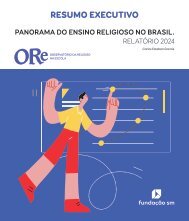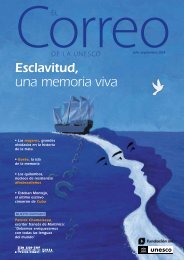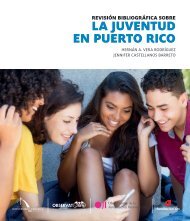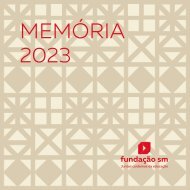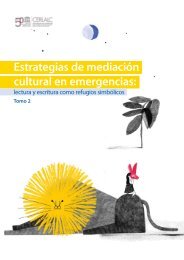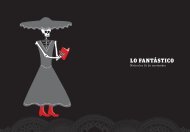Informe PISA 2018 BRASIL (EN)
El Programa para la Evaluación Internacional de Estudiantes (PISA) es una encuesta trienal dirigida a estudiantes de 15 años que evalúa en qué medida han adquirido los conocimientos y habilidades fundamentales para participar plenamente en la sociedad.
El Programa para la Evaluación Internacional de Estudiantes (PISA) es una encuesta trienal dirigida a estudiantes de 15 años que evalúa en qué medida han adquirido los conocimientos y habilidades fundamentales para participar plenamente en la sociedad.
Create successful ePaper yourself
Turn your PDF publications into a flip-book with our unique Google optimized e-Paper software.
10 | Brazil - Country Note - <strong>PISA</strong> <strong>2018</strong> Results<br />
Key features of <strong>PISA</strong> <strong>2018</strong><br />
The content<br />
• The <strong>PISA</strong> <strong>2018</strong> survey focused on reading, with mathematics, science and global competence as<br />
minor areas of assessment; Brazil did not participate in the assessment of global competence.<br />
<strong>PISA</strong> <strong>2018</strong> also included an assessment of young people’s financial literacy, which was optional for<br />
countries and economies. Results for reading, mathematics and science are released on 3 December<br />
2019 and results for global competence and financial literacy in 2020.<br />
The students<br />
• Some 600 000 students completed the assessment in <strong>2018</strong>, representing about 32 million 15-yearolds<br />
in the schools of the 79 participating countries and economies. In Brazil, 10 691 students, in 638<br />
schools, completed the assessment, representing 2 036 861 15-year-old students (65% of the total<br />
population of 15-year-olds).<br />
The assessment<br />
• Computer-based tests were used in most countries, with assessments lasting a total of two hours. In<br />
reading, a multi‐stage adaptive approach was applied in computer -based tests whereby students were<br />
assigned a block of test items based on their performance in preceding blocks.<br />
• Test items were a mixture of multiple-choice questions and questions requiring students to construct<br />
their own responses. The items were organised into groups based on a passage of text describing a<br />
real-life situation. More than 15 hours of test items for reading, mathematics, science and global<br />
competence were covered, with different students taking different combinations of test items.<br />
• Students also answered a background questionnaire, which took about 35 minutes to complete. The<br />
questionnaire sought information about the students themselves, their attitudes, dispositions and<br />
beliefs, their homes, and their school and learning experiences. School principals completed a<br />
questionnaire that covered school management and organisation, and the learning environment.<br />
• Some countries/economies also distributed additional questionnaires to elicit more information. These<br />
included: in 19 countries/economies, a questionnaire for teachers asking about themselves and their<br />
teaching practices; and in 17 countries/economies, a questionnaire for parents asking them to provide<br />
information about their perceptions of and involvement in their child’s school and learning.<br />
• Countries/economies could also chose to distribute three other optional questionnaires for students:<br />
52 countries/economies distributed a questionnaire about students’ familiarity with computers; 32<br />
countries/economies distributed a questionnaire about students’ expectations for further education;<br />
and 9 countries/economies distributed a questionnaire, developed for <strong>PISA</strong> <strong>2018</strong>, about students’ wellbeing.<br />
References<br />
OECD (2019), <strong>PISA</strong> <strong>2018</strong> Results (Volume I): What Students Know and Can Do, <strong>PISA</strong>, OECD Publishing, Paris,<br />
https://doi.org/10.1787/5f07c754-en<br />
OECD (2019), <strong>PISA</strong> <strong>2018</strong> Results (Volume II): Where All Students Can Succeed, <strong>PISA</strong>, OECD Publishing, Paris,<br />
https://doi.org/10.1787/b5fd1b8f-en<br />
OECD (2019), <strong>PISA</strong> <strong>2018</strong> Results (Volume III): What School Life Means for Students’ Lives, <strong>PISA</strong>, OECD Publishing, Paris,<br />
https://doi.org/10.1787/acd78851-en<br />
© OECD 2019 Volumes I-III



